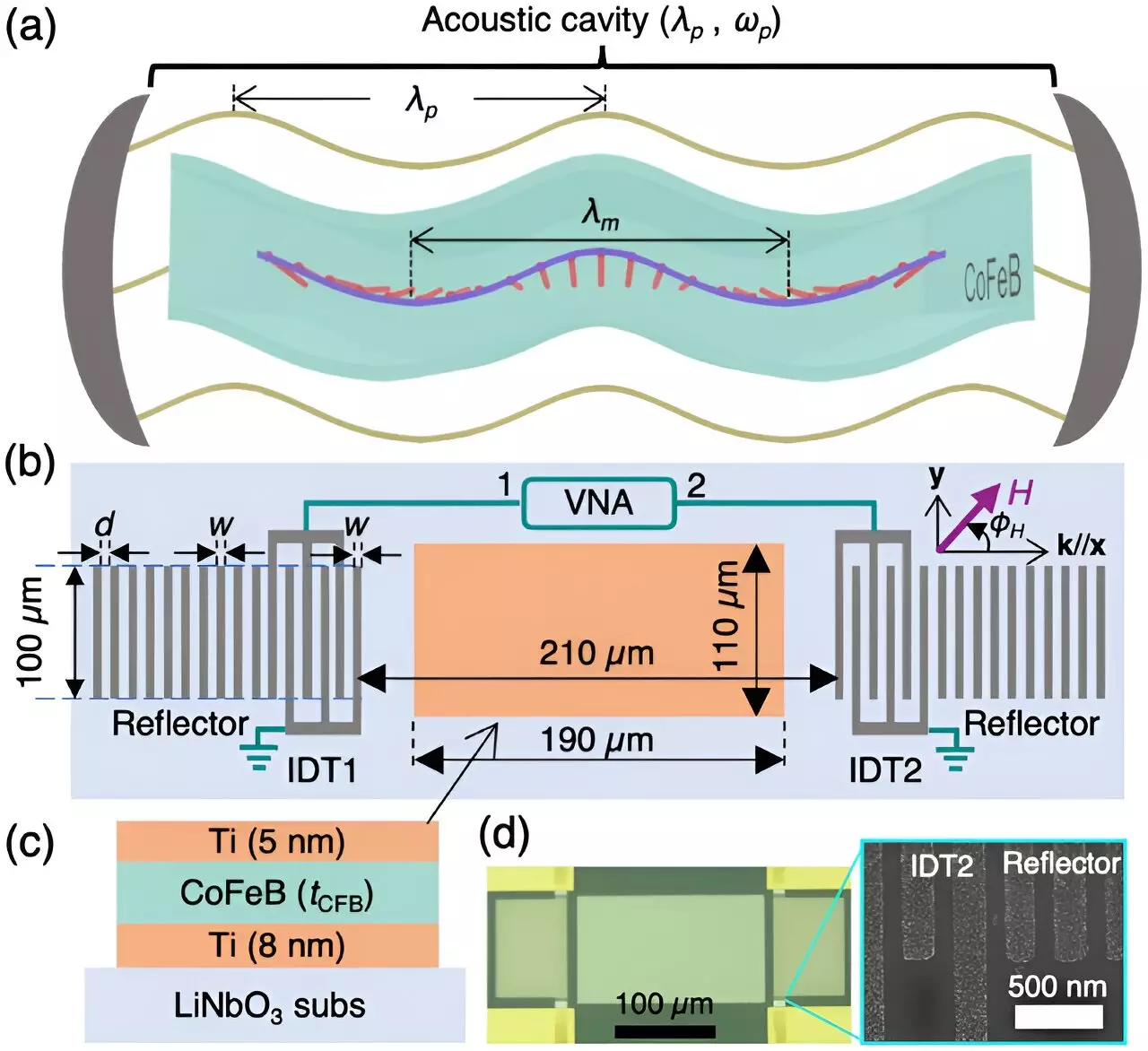In a groundbreaking study conducted by researchers from the RIKEN Center for Emergent Matter Science in Japan, a major breakthrough has been achieved in the field of wave-based information processing devices. This research holds the promise of revolutionizing the way information is stored and manipulated, paving the way for the development of more efficient and environmentally friendly computing technologies.
Traditional computing devices rely on the movement of electric charge, specifically electrons, to function. However, this approach is not without its limitations. The speed at which electrons can travel is restricted, and their movement generates heat, leading to energy losses and environmental concerns. In response to these challenges, scientists have been exploring alternative forms of energy, such as sound, light, and spin, which exhibit wave-like characteristics. By harnessing these wave-like energies, it is possible to create devices with reduced energy losses and enhanced efficiency.
The researchers focused on two types of wave-like energy: magnons, which are quasiparticles representing the collective excitation of spins, and phonons, an acoustic phenomenon consisting of surface waves propagating along a thin film. By establishing a strong coupling between magnons and phonons in a thin film at room temperature, the researchers were able to create a novel hybrid state with the potential to revolutionize information processing technologies.
One of the key challenges faced by the researchers was the difficulty in establishing a strong coupling between regular sound waves and magnets. To overcome this obstacle, the team utilized shear sound waves, a different type of sound wave that is better suited for interacting with magnets. By employing a nano-structured surface acoustic wave resonator, the researchers were able to confine ultrasound waves to a specific location and enhance shear sound waves, facilitating a strong coupling between surface sound waves and magnets in the resonator. This breakthrough allowed the team to achieve strong magnet-sound coupling in a Co20Fe60B20 film, marking a significant advancement in the field.
The findings of this study have far-reaching implications for the development of wave-based information processing devices. By coherently coupling magnon-phonon quasiparticles, researchers can explore new avenues for creating hybrid wave-based technologies with minimal energy losses. This research sets the stage for exciting progress in the field of information processing, with the potential for the creation of more efficient and sustainable computing devices.
The research conducted by the team from the RIKEN Center for Emergent Matter Science represents a major milestone in the field of wave-based information processing devices. By establishing a strong coupling between magnons and phonons in a thin film at room temperature, the researchers have laid the foundation for the development of more efficient and environmentally friendly computing technologies. With further advancements in this area, the future of information processing is looking brighter than ever.


Leave a Reply